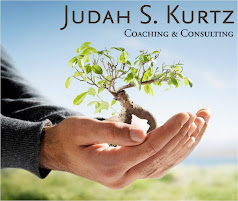 As people, we evolve over time. And so must our relationships if we want them to keep pace with our own growth, change, needs, and priorities. We have a variety of people in our lives –- family, friends, community members, work colleagues, clients, acquaintances, people who provide us services, and the list goes on. Each relationship has a different compact, whether explicit or implied, and it is important to understand the agreement and refresh the terms as needed.
As people, we evolve over time. And so must our relationships if we want them to keep pace with our own growth, change, needs, and priorities. We have a variety of people in our lives –- family, friends, community members, work colleagues, clients, acquaintances, people who provide us services, and the list goes on. Each relationship has a different compact, whether explicit or implied, and it is important to understand the agreement and refresh the terms as needed.This is much clearer in working relationships, as more often than not there are defined expectations for the roles we are supposed to play. As service providers, we often set forth the terms in a contract so both we and the client are clear about what will and will not be provided. As managers and employees, our annual performance appraisals are based on how we measure up to the competencies defined for the role and organization, to the job description that outlines the requirements of the position, and to what our boss (hopefully, collaboratively) defines as objectives for performance and goals.
However, in personal relationships we are often operating in the dark or from habit. Expectations from family relationships are typically outdated –- based on unspoken “rules” created when we were very young. In friendships and romantic relationships, we often fall back on old patterns of behavior from past experiences, and sometimes keep people in our lives well beyond the relationships’ expiration dates. When we meet new people, we see them through filters and place them in certain categories and classifications that direct us toward how we will choose to interact and bond (or not) with them.
So, what do we do about this? How can we refresh our present relationships? For new connections, how can we set clear, healthy boundaries for ourselves and others at the outset that will serve as strong foundations for the future?
Current Relationships
- Take an inventory of your current relationships. Start with the key people you have the most vested interest in: specific family, friends, colleagues, etc.
- For each person, ask yourself which ones are and are not working well, and why? Which ones have run their course? Be honest.
- For each person, reach out to create a conversation with the intention of having a frank discussion to refresh the relationship and define/redefine the compact. The post “360 Feedback from People in Your Life” can support you in how you go about setting these up, and what questions to ask.
- Commit to having regular check-ins on your relationships. We do this at work; why not do it with the people in our lives.
- When you meet someone, be open to seeing them for who they really are, not just what we want them to be. Be transparent and authentic in how you interact with them, so they can get to know you without the mask of “looking good” or “being likeable.”
- Get crystal clear about what you want in your relationships at this juncture. Not what you used to want, or what you think you should want/have. Be present tense. This might change in one month or six, but it’s important to be conscious of your current wants/needs.
- Understand your values, and identify whether this new person meshes up with them or not.
- Set boundaries for yourself. Where appropriate, be explicit about setting boundaries with them. For both self and others, these parameters might include: time, what you’re willing and not willing to do/give, what you want/need, and how emotionally/mentally available you are.
- Commit to yourself to have regular check-ins so that you can keep the relationship current.
We are not built to operate in isolation –- we are social animals. It is important to make investment in the people that mean a great deal to us on both the personal and professional levels. Take the time to get clear, be courageous, and get in conversation about your relationships. It will have a ten-fold return.







No comments:
Post a Comment